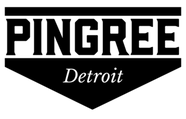Moving Towards a Circular Economy
Nearly half of the emissions that cause climate change come from how we make and use products and food. The world threw away around 300 million tons of plastic in 2019, nearly equivalent to the weight of the human population. Of the 8.9 Billions Pounds of plastic made - 9% recycled & 12% burned and the rest went into a landfill. Altogether, more than 100 billion tons of resources flow into the economy every year, and more than 60% ends up as waste or greenhouse gas emissions.
What is waste? A design flaw and result of an economy that maximizes profit instead of well-being. "Waste" is a social opportunity for innovation. An opportunity to evolve how we humans view the resources and life giving systems around us. When you throw something away- where is away? Sure it goes to “ the dump” but isn’t that just someone’s backyard? What are the long term impacts of single use plastics, forever chemicals, and micro plastics in our water? How can we do better?
Creating a Better way: A Circular economy
As defined by MIT professor John E. Fernandez, a circular economy exists when "sustainable production and consumption advances a people-centric and planet positive future. "
What is it?
It's the opposite of the current linear economy that makes something to only maximize profit and meet demand by consumers for cheap prices with little regard for sustainability, ability to recycle, upcycle, remanufacture, or compost that product at the end of it's life. Instead the design and engineering of products are done in ways that there is little to no components of that product going to the landfill as a part of the life cycle of that product.
As described by MIT, “By shifting your organization to a Circular Economy, you can ensure growth over time while treating waste as a design flaw. By doing this, we take the outdated linear system and make it circular with resiliency. Circular Economies are emerging as a necessity as the overexploitation of natural resources increases.”
Some Ways Pingree works towards a Circular Economy
At the end of life we deconstruct for closed loop
- Upcycle
- Leather
- Sneakers, purses, workfolios, wallets, backpacks, and coasters
- Seat belts
- Dashboard vinyl
- Air bag materials
- Purse lining + waste bag dispensers
- This fall we'll unveil our first wallets that feature an ID window made from Faceshield plastic otherwise destined for the landfill after they were produced -
- Our leather "scrap"
- We donate to 14 small businesses and counting - 95% of which are Detroiters and women of color making everything from earrings to bracelets dresses to bags and clutches.
- Recycle
- Cork - left over in the production of wine bottle cork + recycled cork from bars and restaurants across the USA is transformed into our Corktown Coasters
- Hardware - metal, broken zippers, etc - are recycled
- Working with partners to turn our leather scrap and ALL leather scrap into yarn for 3D knitting clothing and footwear.
- Transparency
- in the next 2 years our goal is to have QR code on every product you can scan to know the people who helped make your goods, where all material inputs came from, and what the carbon footprint is of each of those materials + request a return package at the end of life of that product so it never ends up in the landfill
Incentives for doing good:
Wouldn't it be a strong driver for innovation and accelerating sustainable solutions if businesses, non-profits, and research institutions that have committed to be of social benefit, each working to drive forward solutions with more responsible life cycle analysis and cradle-to-cradle designs get additional support from the public and private sectors? If those companies committed to being zero waste, carbon negative, and circular in their engineering had support from grants, tax breaks, and free technical assistance, we'd get to where we need to be much quicker. So many small start-ups like Pingree Detroit (Shop our Upcycled Offerings Here) who want to do good, never make it past the 1st year because a lack of infrastructure and support to do R&D, market research, launch, and then scale sustainably. It took Pingree 2.5 years of extreme boot strapping before gaining enough traction to truly get off the ground and launch our first products made from upcycled and locally sourced materials. We can do so much more to those seeking to be part of the solution.
Some Inspiring Models in the Circular Economy:
- Treet is a US-based startup that offers peer-to-peer resale marketplaces. It allows fashion brands to set up recommerce websites where customers buy and sell items from each other.
- French startup BicyCompost enables bio-waste valorization. The startup uses electric bikes to collect bio-waste from across the city of Bordeaux. It then converts the organic waste, primarily food waste, into compost that replaces synthetic fertilizers. The startup’s service allows local businesses to get rid of their organic waste and contribute to a circular economy.
- Materials Market Place: The Online Platform I was lucky enough to be part of creating back in 2009 for people and businesses to share waste streams - The Materials Marketplace -
- Empowerment Plan partnered with GM to take water bottles recycled from assembly plants across the country and turn this plastic into a warm insulated liner for their coats made for the homeless
- Bite Toothpaste & deordorant: Plastic free
- Plaine Products: Refillable shampoo, body wash, and conditioner
- Eco Enclose - for all our packaging
- Google “soap free refill in Michigan”
- Pingree Detroit - We've diverted 17 tons of leather, seat belts, air bag material from the auto industry since 2015. Please tell a few folks about us.
Want to learn more? Come hear our talk on Circular Economy tonight at the Ford House at 7pm. More details can be found here.


Comments